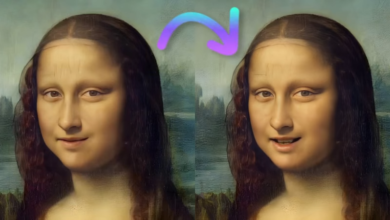How AI-Generated Movie Trailers Are Changing the Film Industry

The Rise of AI in Filmmaking
Artificial Intelligence (AI) has been making waves in various industries, and the film industry is no exception. From scriptwriting to visual effects, AI has been revolutionizing the way movies are made. One of the most significant advancements in recent years is AI-generated movie trailers. These trailers, crafted using advanced machine learning algorithms, are transforming the way films are marketed and promoted.
What Are AI-Generated Movie Trailers?
Traditionally, creating a movie trailer required skilled editors who carefully selected and arranged scenes to craft a compelling preview. With AI, this process is becoming more automated. AI can analyze a film’s script, identify key moments, and assemble a trailer that highlights the most engaging elements. This not only saves time but also ensures trailers are optimized for audience engagement based on data-driven insights.
The Impact on the Film Industry
AI-generated trailers are reshaping the film industry in several ways. First, they reduce production time, allowing studios to release promotional content faster. This is particularly beneficial for large-scale productions and streaming platforms that require quick turnaround times. Additionally, AI helps eliminate human bias by analyzing audience preferences and trends, ensuring trailers resonate with the target demographic.
Another advantage is cost-effectiveness. Traditional trailer production can be expensive, requiring multiple revisions and extensive human resources. AI-driven editing tools streamline this process, making high-quality trailer production more accessible to independent filmmakers and smaller studios.
Read also: The Hidden Advantage: How Drywall LED Channels Enhance Interior Aesthetics?
Enhancing Audience Engagement
The ability of AI to analyze vast amounts of audience data allows for the creation of highly personalized trailers. AI can generate different versions of a trailer tailored to specific audiences, maximizing engagement across various platforms. For example, action movie fans might receive a trailer emphasizing high-octane sequences, while drama lovers might see a version highlighting emotional moments.
In addition, AI can help optimize trailers for different social media platforms. Shorter, fast-paced clips might work best on TikTok, while longer, more detailed trailers may be more effective on YouTube or in cinemas. This flexibility ensures that marketing efforts reach the right audience in the most impactful way.
The Future of AI in Movie Marketing
As AI technology continues to advance, the future of AI-generated movie trailers looks promising. Soon, we may see AI-powered systems capable of creating real-time, interactive trailers that adapt based on viewer reactions. This could lead to a more immersive and engaging movie promotion experience, further bridging the gap between filmmakers and audiences.
Additionally, AI-generated trailers may become standard practice for upcoming releases. With major studios already experimenting with AI in trailer production, it’s only a matter of time before AI becomes an integral part of film marketing strategies.
How AI Complements Traditional Trailer Making
Despite its advantages, AI is not replacing human creativity. Instead, it is complementing traditional trailer-making techniques. Filmmakers still have the final say in the creative direction, ensuring the essence of a film is accurately portrayed. AI serves as a tool to enhance efficiency, provide insights, and offer new possibilities for storytelling in marketing.
For filmmakers looking to streamline their workflow, using a movie trailer maker can help craft engaging previews that capture audience attention effectively. AI-driven solutions provide an additional layer of creativity while maintaining high production value.
The Role of AI in Indie Filmmaking
Independent filmmakers stand to gain the most from AI-driven trailer generation. With limited budgets and resources, indie creators often struggle with promotional materials. AI levels the playing field by providing cost-effective solutions that allow smaller studios to produce high-quality trailers comparable to those of major production houses.
Additionally, the rise of AI in trailer-making coincides with the growth of video making apps. These applications allow creators to experiment with AI-powered editing, making the process more accessible and intuitive for filmmakers of all levels.
Conclusion
AI-generated movie trailers are revolutionizing the film industry by making marketing more efficient, cost-effective, and data-driven. While AI enhances the trailer-making process, it does not replace human creativity but rather supports filmmakers in crafting compelling promotional content. As AI technology continues to evolve, we can expect even more innovative applications in the world of movie marketing, paving the way for a new era of film promotion.




